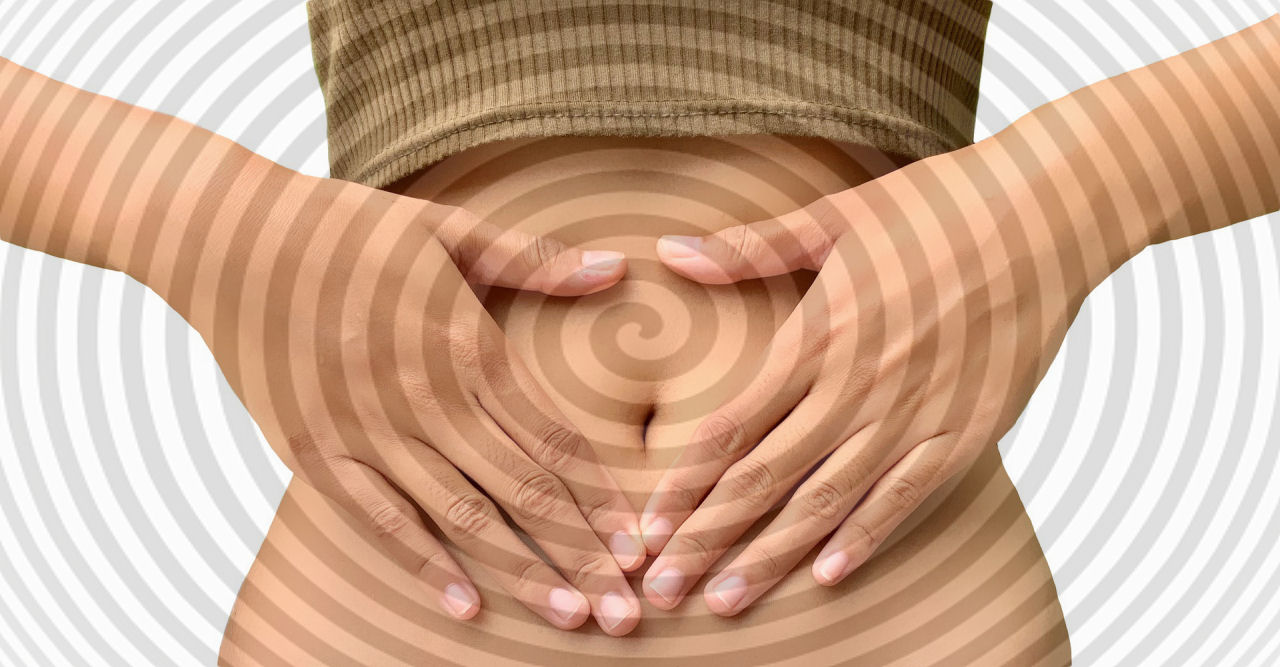
If you are struggling with an unexplained health issue, it may be worth considering gut directed hypnotherapy. This type of therapy is based on the premise that the gut is the root of all health and that by healing the gut, we can heal the body as a whole.
Gut directed hypnotherapy is a type of hypnosis that uses positive affirmations and visualizations to help heal the gut. The therapist will work with you to identify any negative beliefs or emotions that may be causing problems in your gut. Once these are identified, the therapist will help you to release them and replace them with more positive thoughts and feelings.
The aim of gut directed hypnotherapy is to restore balance in the gut so that it can function properly. This, in turn, will lead to improved overall health.
If you are interested in trying gut directed hypnotherapy, it is important to find a qualified therapist who has experience in this field.
Medical Disclaimer: The information on this site is not intended or implied to be a substitute for professional medical advice, diagnosis, or treatment. All content, including text, graphics, images, and information, contained on or available through this website is for general information purposes only.
What Is Gut Hypnotherapy (What is IBS)?
Irritable bowel syndrome (IBS) is a disorder that affects the large intestine. Symptoms include cramping, abdominal pain, bloating, gas, diarrhea, and constipation.
IBS is a chronic condition that can be frustrating and uncomfortable. It is important to know that there are ways to manage IBS and get relief from its symptoms.
What Causes Gut IBS?
The exact cause of IBS is unknown. However, it is thought to be due to a combination of factors. These include:
- Abnormalities in the digestive system: There may be problems with how the digestive system muscles work or with the nerves that control them. This can make it difficult for the digestive system to move food through the intestines properly.
- Abnormalities in gut bacteria: Changes in the balance of good and bad bacteria in the gut may play a role in IBS. However, more research is needed to understand this link.
- Mental health issues: Stress, anxiety, and depression have all been linked to IBS. This may be due to changes in brain chemistry or hormones.
What Are the Symptoms of Gut IBS?
Symptoms vary from person to person but can include: abdominal pain or cramping; bloating; excess gas; diarrhea; constipation; feelings of incomplete evacuation after going to the bathroom; mucus in the stool; fatigue; and loss of appetite or weight loss. Some people experience a combination of symptoms while others only have one or two.
How Is Gut IBS Diagnosed?
There is no specific test to diagnose IBS, so your doctor may perform several tests and ask you questions about your symptoms. Tests may include:
- Blood tests
- Stool samples
- Colonoscopy; and/or
- X-rays of the abdomen.
If these tests are not conclusive, your doctor may refer you to a specialist such as a gastroenterologist for further testing.
What Are Treatment Options for Gut IBS?
The most important step in managing IBS is taking control of your diet, which can help reduce symptoms and avoid flare-ups. A low fiber, high soluble fiber diet is usually recommended because it improves symptoms by helping to regulate the intestines. Foods that are good sources of soluble fiber include bananas and oatmeal.
Other treatment options for IBS may include:
- Counseling or Therapy
- Clinical Hypnosis or Hypnotherapy
- prescription medications
- Probiotics
- Antispasmodics to reduce cramping and pain in the digestive tract
- Antidiarrheal medicines such as loperamide (Imodium); and
- Over-the-counter medication such as Immodium
If you experience symptoms of IBS, it is important to speak with your doctor about a plan that works best for you. Taking control of your diet and lifestyle changes can help improve your quality of life!
What Medication Is Prescribed For Ibs?
There are many different medications that can be prescribed for IBS, and the exact medication that is prescribed will depend on the specific symptoms that the patient is experiencing. Some of the most common medications that are prescribed for IBS include:
Viberzi – helps treat diarrhea from gut Ibs (Refer to WebMD)
Loperamide – helps to reduce diarrhea (Refer to WebMD)
Dicyclomine – helps to relieve abdominal pain and cramping; (Refer to WebMD) and
Hyoscyamine – helps to relieve abdominal pain and cramping (Refer to WebMD)
In some cases, antidepressants may also be prescribed in order to help alleviate the psychological symptoms associated with IBS. It is important to note that there is no one specific medication that is guaranteed to work for all patients with IBS, and it may take some trial and error in order to find the best medication or combination of medications for each individual.
What Is Viberzi For?
Viberzi is a medication that is prescribed to treat diarrhea caused by irritable bowel syndrome or IBS. Viberzi works by slowing down the movement of food through the intestines, which helps control the symptoms of IBS like cramping, abdominal pain, and excessive gas. It also reduces watery stools and bloating. In addition, it can help relieve constipation in some people with IBS. However, Viberzi is not intended for use in patients who have severe stomach problems such as an obstruction in their intestine or a history of paralytic ileus (a condition where food particles get stuck in your small intestine).
If you are experiencing severe gastrointestinal symptoms, speak to your doctor about whether Viberzi may be right for you. Otherwise, this medication can be a helpful tool in managing the symptoms of IBS and improving your quality of life.
Loperamide for IBS
Loperamide for IBS helps to ease symptoms like diarrhea, constipation, and abdominal pain in those suffering from IBS. Loperamide works by slowing down the contractions of your colon muscles, which reduces the frequency of bowel movements. Let’s take a closer look at how loperamide for IBS can help you manage this condition more effectively:
The first thing to know about loperamide for IBS is that it comes in two different forms – immediate-release and extended-release. Immediate-release loperamide is designed to be taken as needed, while extended-release loperamide should be taken once daily. The most important thing to remember when taking loperamide is to start with the lowest possible dose and increase it gradually as needed. This will help your body adjust to the medication and reduce the risk of side effects.
If you’re suffering from diarrhea, loperamide can help by reducing the number of loose stools you have each day. It’s important to note that loperamide does not cure IBS, but it can certainly help relieve symptoms. For constipation, loperamide works by softening stool and making it easier to pass. It’s important to drink plenty of fluids when you’re taking loperamide for IBS, as this will help prevent dehydration.
As with any medication, there are potential side effects associated with loperamide. The most common side effect is constipation, which can usually be remedied by drinking plenty of fluids and increasing your fiber intake. Some people may also experience bloating, gas, or an upset stomach. If you experience any of these symptoms, it’s important to talk to your doctor to make sure they’re not indicative of a more serious problem.
In general, loperamide is a very safe and effective medication for managing IBS symptoms. However, as with any medication, there is always the potential for side effects. If you experience any unusual or bothersome symptoms while taking loperamide, it’s important to talk to your doctor right away. If you’re struggling with IBS and are looking for a safe, effective way to manage your symptoms, loperamide may be the solution you’ve been searching for. By starting with a low dose and gradually increasing it as needed, you can find relief without worrying about potential side effects. Talk to your doctor today to see if loperamide is right for you.
Dicyclomine for IBS
Dicyclomine is an anticholinergic medication that is used to treat the symptoms of irritable bowel syndrome (IBS). This medication works by blocking a certain natural substance (acetylcholine) that your body makes. This action helps to decrease muscle spasms in the intestines and relieve the symptoms of IBS.
Dicyclomine is available in both capsule and tablet form and is usually taken 3 or 4 times a day. The capsule form of this medication should be taken with food, while the tablet form may be taken with or without food. If you are taking the extended-release tablets, they should be taken on an empty stomach, at least 1 hour before or 2 hours after a meal.
Common side effects of dicyclomine include constipation, dizziness, dry mouth, headache, nausea and blurred vision. Do not drive or operate heavy machinery until you know how this medication affects you. It is important to speak with your healthcare provider before taking dicyclomine if you have any underlying conditions.
You can prevent symptoms of irritable bowel syndrome by following a healthy diet and lifestyle. This may include avoiding foods that are known to trigger IBS symptoms such as caffeine and alcohol. You should also try to manage stress in healthy ways like practicing relaxation techniques or engaging in regular exercise. If your symptoms do not improve with these lifestyle changes alone, your doctor may recommend medications such as dicyclomine to help relieve your symptoms. Always discuss with your doctor which treatment option is best for you.
Dicyclomine is a safe and effective treatment option for the management of irritable bowel syndrome. Talk to your doctor to learn more about how this medication may be able to help you manage your IBS symptoms.
Hyoscyamine for IBS
Hyoscyamine is a medication used to treat stomach and intestinal conditions. It is also used to relieve muscle spasms. Hyoscyamine works by blocking certain receptors in the body that are involved in the contraction of smooth muscles. This action helps to relax the smooth muscles in the gastrointestinal tract, which can help to reduce symptoms of stomach and intestinal conditions such as cramps, bloating, and diarrhea. Hyoscyamine may also be used to relieve muscle spasms associated with conditions such as multiple sclerosis or cerebral palsy.
Hyoscyamine is available in both oral and injectable forms. It is typically taken three to four times a day. Possible side effects of hyoscyamine include dry mouth, blurred vision, constipation, and urinary retention. Hyoscyamine can also cause drowsiness. Therefore, it is important to avoid driving or operating heavy machinery while taking this medication.
Hyoscyamine may be an effective treatment option for some people with IBS. It can help to relieve symptoms such as stomach pain, cramps, bloating, and diarrhea. However, it is important to talk to a doctor before taking hyoscyamine or any other medication for IBS. This is because there is not currently a cure for IBS and medications can only help to manage symptoms. In addition, some people may experience side effects from hyoscyamine that make it difficult to tolerate. Therefore, it is important to work with a doctor to find an effective and safe treatment option for IBS.
What To Do For An Ibs Flare Up?
If you’re dealing with an IBS flare up, there are a few things you can do to help ease your symptoms. First, it’s important to stay hydrated by drinking lots of fluids. You might also want to try eating smaller meals more often throughout the day and avoiding trigger foods that make your symptoms worse. Getting plenty of rest and relaxation is also key during a flare-up (of which Hypnosis CD or a Pre-Recorded Hypnotherapy session works). Lastly, over-the-counter medications like antispasmodics and laxatives can help relieve some of the pain and discomfort associated with IBS. If your symptoms are severe or don’t seem to be improving, be sure to talk to your doctor. They can help you develop a plan to manage your IBS and get you the relief you need.
What Foods Are Good For Ibs With Constipation?
IBS or Irritable Bowel Syndrome is a common disorder affecting the large intestine. It is quite prevalent, and it can cause serious physical discomfort as well as mental distress. One of the major symptoms of IBS is constipation, which can be rather painful and difficult to deal with. But fret not, there are plenty of foods that you can eat to help relieve this condition. Let’s take a look at some of them:
The first thing that you need to do if you have constipation due to IBS is to ensure that your diet contains adequate amounts of fiber. Fiber not only helps in combating constipation but also aids proper digestion, thereby preventing further episodes of this problem. You should try and include high-fiber foods in every meal, such as whole grains, fruits, vegetables, beans, and legumes.
Another food group that is excellent for combating constipation caused by IBS is probiotics. Probiotics are live microorganisms that help promote a healthy balance of gut flora. They can be found naturally in fermented foods like yogurt and sauerkraut, or you can also take them in the form of supplements. Probiotics help regulate bowel movements and improve overall digestive health.
If you are looking for a quick fix to your constipation problem, then prunes are your best bet. Prunes are high in fiber and also contain sorbitol, which is a natural laxative. Eating just a few prunes every day can help promote regular and smooth bowel movements. However, keep in mind that too much sorbitol can also have a laxative effect. So make sure you don’t eat too many prunes as this can cause diarrhea or loose stools instead of constipation relief.
Apart from these, other foods that are good for IBS with constipation include bananas, oatmeal, honeydew melon, green leafy vegetables like spinach and kale, whole grains like quinoa and millet, beans and legumes, nuts and seeds like sunflower seeds and almonds. A healthy lifestyle that includes plenty of physical activity is also essential to combat constipation due to IBS. So make sure you get out there every day and take care of your health! These are just some of the foods that are good for IBS with constipation. Include them in your diet and see the difference for yourself.

